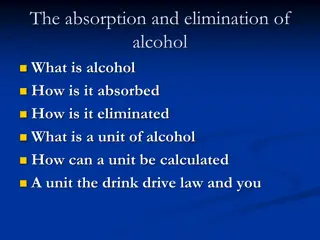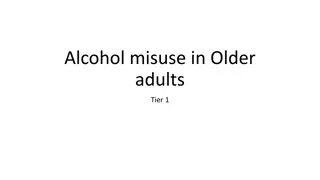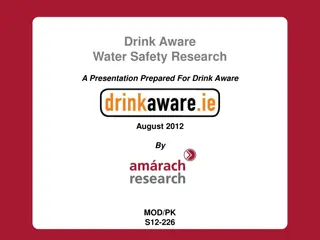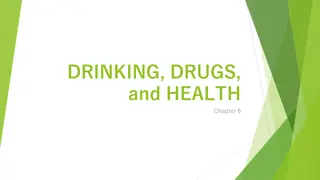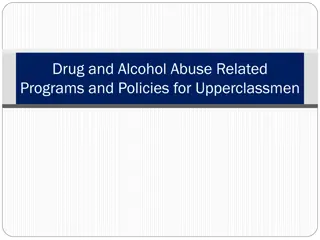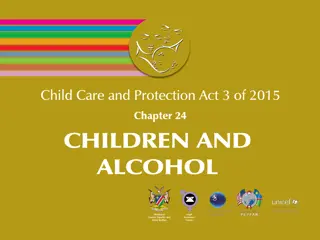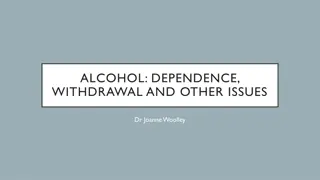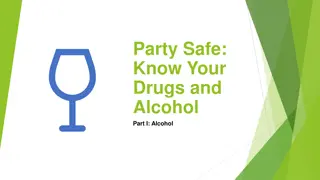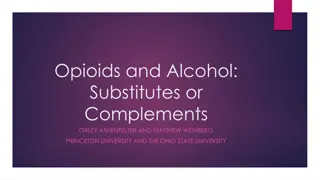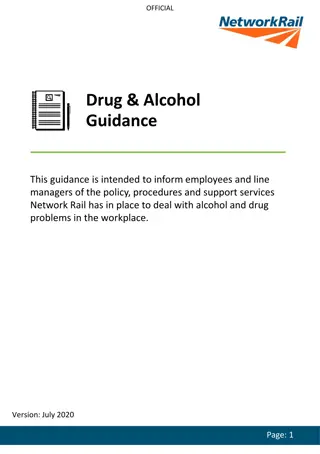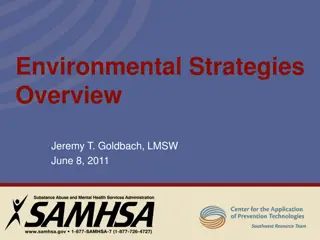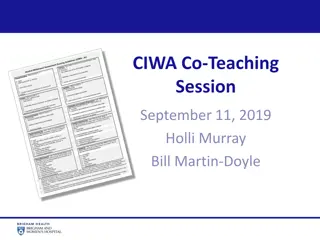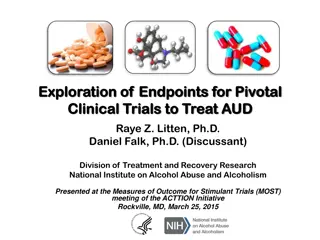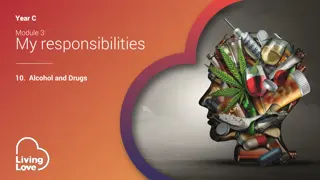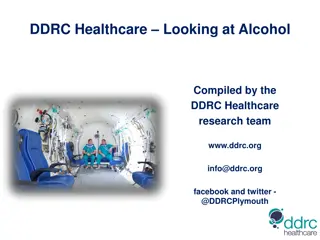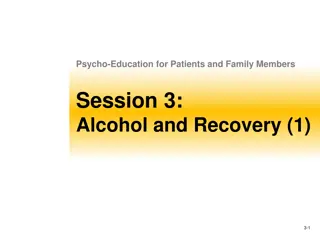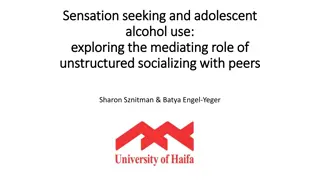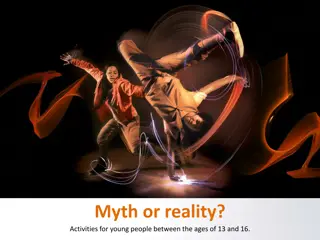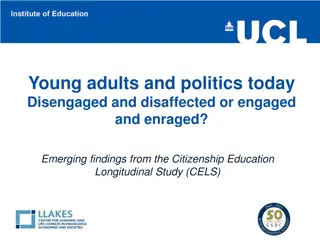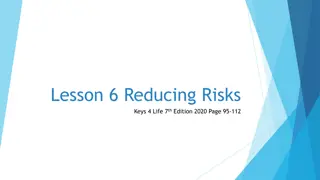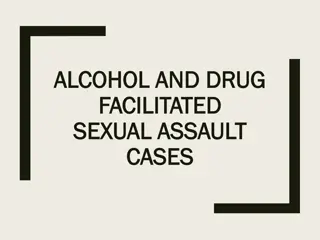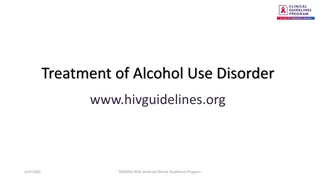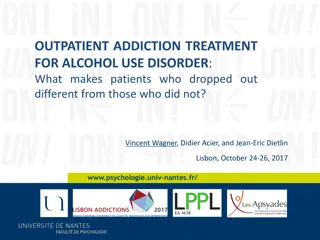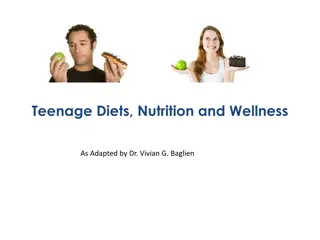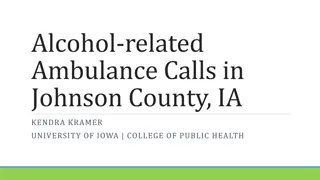Understanding the Risks of Alcohol Consumption for Teenagers and Young Adults
Alcohol consumption for teenagers and young adults can lead to various health and social issues. The content discusses the legal aspects, effects on behavior, individuals who should avoid alcohol, and long-term health risks associated with excessive drinking. It emphasizes the importance of responsible drinking and highlights the potential consequences of underage alcohol use.
Download Presentation

Please find below an Image/Link to download the presentation.
The content on the website is provided AS IS for your information and personal use only. It may not be sold, licensed, or shared on other websites without obtaining consent from the author. Download presentation by click this link. If you encounter any issues during the download, it is possible that the publisher has removed the file from their server.
E N D
Presentation Transcript
Drinking Drinking For teenagers and above By:Gianna,Perla,Sinthya
Children and young people in general are not supposed to drink alcohol before the age of 18. Alcohol use during the teenage years is connected to a wide selection of health and social problems. However, if children were to decide to be drinking underage, they should be minimum at the age of 15 yet their parents must be in charge or any other adult that can be responsible for them.
How does alcohol affect human behavior? Alcohol affects the part of your brain that takes control and makes u feel self- conscious and discomforted, so you may feel relaxed, less concerned, and more self assured after a drink. But these effects quickly decrease. The chemical changes in your brain can soon lead to more negative feelings, such as anger, depression,anxiety regardless of your mood
There are some people who should not drink any alcohol, including those who are: Younger than age 18. Pregnant or may be pregnant. Driving, planning to drive, or participating in other activities requiring skill, coordination, and alertness. Taking certain prescription or over-the-counter medications that can interact with alcohol. Suffering from certain medical conditions. Recovering from alcoholism or are unable to control the amount they drink.
Long-Term Health Risks Over time, excessive alcohol use can lead to the development of chronic diseases and other serious problems including: High blood pressure, heart diseases in general , stroke, liver disease, and digestive problems. Cancer of the mouth, throat, esophagus, voice box, liver, colon, and rectum. Eventually it may weaken the immune system , increasing the chances of getting sick. Learning and memory loss problems, including dementia and poor school performance. Mental health problems, including depression and anxiety ,mood disorders and most importantly eating disorders Social problems, including family problems, job- related problems, and unemployment.
What does the law think about this The police can stop, and arrest a person under 18 who is drinking alcohol in public. If you're under 18, it's against the law: for someone to sell you alcohol weather it s a stranger or not to buy or try to buy alcohol by yourself for an adult to buy or try to buy alcohol for you to drink alcohol in licensed premises, such as a restaurant
Is alcohol bad for your heart and if so Why? The cardiovascular system will be affected by alcohol. At the time of drinking, alcohol can cause a temporary increase in heart rate and blood pressure . drinking above the guidelines can lead to on-going increased heart rate, high blood pressure, the heartmuscle may weaken and get irregular heartbeat.
does alcohol play a role in the brain? Alcohol plays a huge part of changing how the brain works and looks . Alcohol makes it harder for a human s memory, speech, and the way they do their jobs , resulting in a higher chance of injuries and other negative outcomes.
Why do people drink too much? It s proven that alcohol relieves negative emotions (e.g., anxiety or depression), the expectation that alcohol will relieve these feelings, and people use drinking as a way of coping with stress rather than confronting their life problems to a person.
Alcohol changes the chemicals that break down and remove scar tissue. This means that scar tissue builds up in the liver. Scar tissue replaces normal healthy cells. This means that the liver won t work properly and can fail, leading to death.Alcohol-related liver disease is recognized from other forms of long-term liver disease such as non-alcohol related fatty liver disease and chronic. However, drinking alcohol could make these conditions even worse. Anyone who has any form of liver disease is advised not to drink alcohol or to seek advice from their specialist about their drinking. Fatty liver develops because of a build-up of fat in the cells in the liver. And drinking a large amount of alcohol, even for just a few days, can lead to a build-up of fat in the liver.
How can you prevent from being an alcoholic? there are ways that can prevent you from drinking alcoholic beverages and help you avoid the risk of creating an addiction. 1.Don t keep alcohol in your house. 2.Know your limits and when you should stop. 3.Surround yourself with non-drinkers to forget about drinking. 4.Know the effect of alcohol use. 5.Explain your concern to your Close family/friends. 6.Set a drinking goal. 7.Keep a diary of your drinking. 8.Drink slowly. 9.Set yourself days where u won t be drinking 10.Watch for peer pressure. 11.Keep yourself busy.


